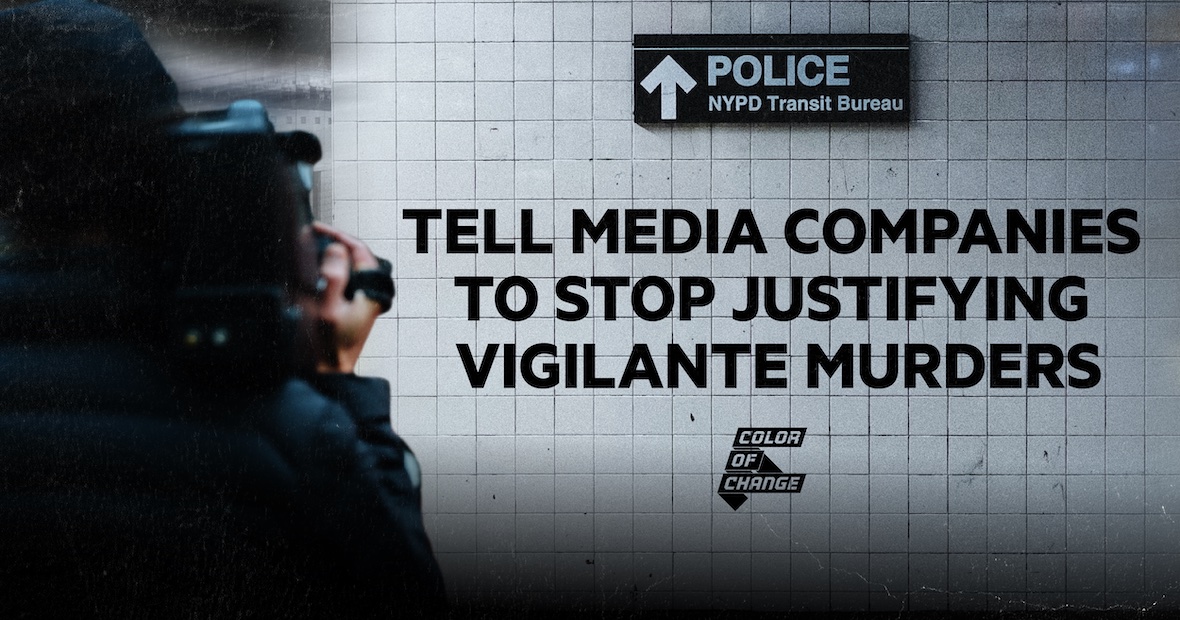Below is the petition we will send to The New York Times, ABC News, MSNBC, NBC New York and Other Media Outlets
Tell Media Companies to Stop Justifying Vigilante Murders

Jordan Neely, a 30-year-old, unhoused Black man, was brutally killed on Monday after getting on the New York City subway. He began to experience a mental health emergency and was yelling about going hungry. Instead of offering assistance, a 24-year-old white vigilante pinned Neely in a chokehold that lasted for 15 minutes and killed him. Yet police haven’t charged the vigilante.
Despite this violence in broad daylight, media outlets have rushed to adopt the language of the police and are treating Neely like a suspect rather than questioning why the New York Police Department refused to press charges. By falsely presenting this case as an act of self defense, media outlets such as The New York Times and ABC News are justifying vigilante murders. MSNBC and NBC New York published a false claim from an NYPD officer who was not even at the scene that Neely yelled that he would “hurt” people, when in actuality he was yelling about hunger and desperation. This is a deliberate attempt to smear Neely and justify his senseless death. No one who proclaims their hunger and hopelessness should be met with unrelenting violence.
The lack of empathy from The New York Times, ABC News, MSNBC, NBC New York and other media outlets is not just troubling, but part of a long pattern of mindlessly parroting talking points from the NYPD. Such practices lead to justifying violence against and the killing of people from marginalized communities, particularly Black and Brown people who face disproportionate rates of houselessness. Unhoused people are more likely to become victims of violent crimes, yet the narrative of “dangerous homeless people” is pervasive in our media. We must hold media outlets accountable for spreading harmful police propaganda and narratives that encourage vigilantes to take matters into their own hands.
We can already see the “no angel” rhetoric in articles by ABC News that focus on Neely’s past criminal record. Every time a Black person is unjustly killed, we see the media and police search for evidence that can be used to disregard their lives. The media has a duty to reject and not spread harmful narratives that criminalize marginalized people, and to challenge political leaders like Mayor Adams and government agencies like the NYPD when they push false and misleading claims about crime. Jordan Neely did not deserve to die because he was experiencing a mental health crisis, and it’s up to the media to explicitly say so.
Here is the Petition:
I take issue with your reporting on the New York subway killing of Jordan Neely, the 30-year-old Black man who was killed May 1 on the F-Train when he was brutally held in a chokehold for 15 minutes. Your current reporting does not go far enough to reject vigilante violence against marginalized people and groups. By passively adopting the language of the police, and refusing to interrogate their statements and lack of action, you are justifying the vigilante murder of an unhoused man experiencing a mental health crisis. We call on you to address the gaps in your reporting and to give Jordan Neely the respect in death he was denied in life. We demand you:
- Stop using the passive voice when discussing the violence of vigilantes like this.
- Interrogate and challenge why the NYPD has failed to act.
- Commit to broader reforms to ensure that your news outlet does not publish biased or unfounded claims and statistics regarding crime.
Sincerely,
[Your Name]

